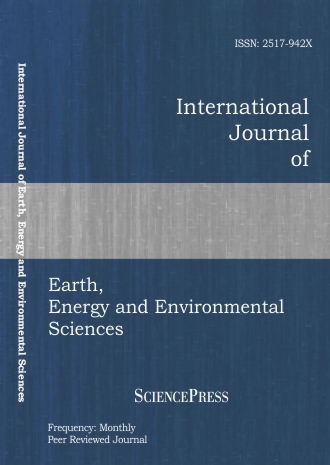
Scholarly
Volume:9, Issue: 7, 2015 Page No: 829 - 832
International Journal of Earth, Energy and Environmental Sciences
ISSN: 2517-942X
1034 Downloads
Assessment of Hargreaves Equation for Estimating Monthly Reference Evapotranspiration in the South of Iran
Evapotranspiration is one of the most important components of the hydrological cycle. Evapotranspiration (ETo) is an important variable in water and energy balances on the earth’s surface, and knowledge of the distribution of ET is a key factor in hydrology, climatology, agronomy and ecology studies. Many researchers have a valid relationship, which is a function of climate factors, to estimate the potential evapotranspiration presented to the plant water stress or water loss, prevent. The FAO-Penman method (PM) had been recommended as a standard method. This method requires many data and these data are not available in every area of world. So, other methods should be evaluated for these conditions. When sufficient or reliable data to solve the PM equation are not available then Hargreaves equation can be used. The Hargreaves equation (HG) requires only daily mean, maximum and minimum air temperature extraterrestrial radiation .In this study, Hargreaves method (HG) were evaluated in 12 stations in the North West region of Iran. Results of HG and M.HG methods were compared with results of PM method. Statistical analysis of this comparison showed that calibration process has had significant effect on efficiency of Hargreaves method.
Authors:
References:
[1] Allen, R. G., Pereira, L.S., Reas, D., and Smith, M. (1998). “Crop